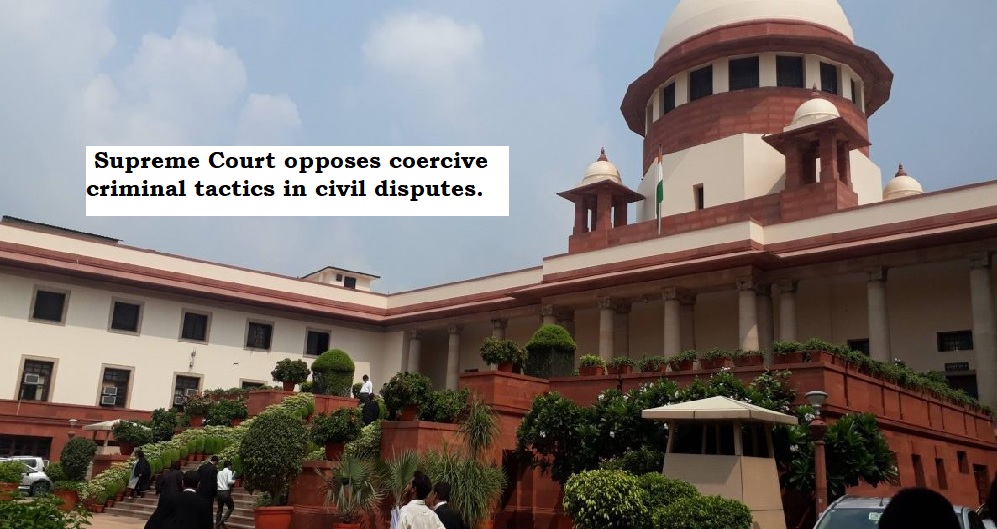


On January 19, the Supreme Court made preliminary observations emphasizing that a mere breach of contract does not automatically translate into charges of cheating or breach of trust under the Indian Penal Code. The court, comprising Justices Sanjiv Khanna and Dipankar Datta, stressed that Sections 420 or 406 of the Indian Penal Code, 1860, should not be invoked unless there is clear evidence of fraudulent or dishonest intent from the outset of the transaction.
Furthermore, the Division Bench expressed disapproval of the practice of converting civil disputes into criminal cases. The court drew on the precedent set in the case of Indian Oil Corporation v. NEPC India Ltd. and Others to underscore its stance. The court cautioned against attempting to resolve civil disputes, which lack criminal elements, through the application of pressure via criminal prosecution.
These observations arose during the hearing of a criminal appeal challenging an order issued by the Rajasthan High Court, Jodhpur bench. The accused individuals faced allegations of entering into an agreement to sell with the complainant, receiving Rs. 80 lakhs, and subsequently failing to fulfill their obligations. An FIR was lodged against them under Sections 420 and 120-B (criminal conspiracy) of the IPC.
In response, the accused sought anticipatory bail from the High Court, contending that the matter was a civil dispute arising from a breach of contract. However, their bail application was dismissed by the High Court, prompting them to appeal to the Supreme Court.
In rendering its decision, the Supreme Court acknowledged that the appellants had presented a compelling case for the grant of anticipatory bail. Despite granting bail, the court clarified that the observations made regarding the nature of civil disputes and criminal prosecution pressure would not factor into the final determination of the case's merits.
The court's stance highlights the importance of distinguishing between civil and criminal matters, particularly when assessing breaches of contract. The mere act of breaching a contract, in the court's view, does not automatically warrant criminal charges unless there is evident fraudulent or dishonest intent at the inception of the transaction.
The court's reference to the Indian Oil Corporation case underscores the need for a cautious approach in converting civil disputes into criminal cases. This is in line with the principle that criminal prosecution should be reserved for cases involving clear criminal intent and not be misused as a tool to exert pressure in purely civil matters.
The specific case at hand involved an agreement to sell, a financial transaction, and subsequent allegations of non-compliance. The court's decision to grant anticipatory bail indicates its recognition of the civil nature of the dispute, reinforcing the idea that breach of contract alone should not lead to automatic criminalization.
In conclusion, the Supreme Court's observations serve as a significant guideline for legal practitioners and the judiciary, emphasizing the importance of discerning between civil and criminal aspects in disputes. The decision contributes to maintaining the integrity of the legal system by discouraging the misuse of criminal proceedings in cases primarily rooted in civil disagreements.
TAGS: Supreme Court breach of contract cheating breach of trust Indian Penal Code fraudulent intent criminal prosecution